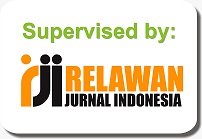The Implementation of the Consciousness-Raising (C-R) Method in Improving EFL Students’ Writing Skills
DOI:
https://doi.org/10.32939/tarbawi.v18i1.1744Keywords:
Classroom Action Research, Consciousness-Raising (C-R) Method, Writing SkillsAbstract
The purpose of this study was to determine the extent to which the Consciousness-Raising (C-R) method improves students' writing skills and to identify the factors that influence the improvement process. The study was conducted with third-semester students in the English Department, consisting of 16 students. The research design was Classroom Action Research (CAR) and was carried out in three cycles over a period of 12 weeks, with four meetings including one test in each cycle. The cycles comprised of planning, action, observation, and reflection. Qualitative data was obtained through observation, field notes, and interviews, while quantitative data was obtained from students' writing tests. The results of this study showed improvement in the students' writing skills, as demonstrated by the teaching and learning activities throughout each cycle and the increasing scores of the students' writing tests, which went from 65.45 in cycle 1 to 77.63 in cycle 2 and 88.22 in cycle 3. The decrease in errors in each test cycle also supported this improvement. The observation and field notes indicated that the C-R method increased students' attention and awareness, resulting in more focus and engagement in the learning process. The factors that influenced the improvement of students' writing skills were motivation, the role of the instructor, classroom environment, materials, and media. The C-R method was found to be effective in improving students' writing skills and resolving writing problems. The researcher therefore recommends the use of this method, taking into consideration the supporting factors.
Downloads
References
Al Mamun, M. (2014). Effectiveness of audio-visual aids in language teaching in tertiary level (Doctoral dissertation, BRAC University).
Ameri-Golestan, A., & Nezakat-Alhossaini, M. (2013). Efficacy of explicit teaching and consciousness-raising in IELTS writing. Procedia-Social and Behavioral Sciences, 70, 853-858.
Burns, A., & Siegel, J. (Eds.). (2017). International perspectives on teaching the four skills in ELT: Listening, speaking, reading, writing. Springer.
de Barba, P. G., Kennedy, G. E., & Ainley, M. D. (2016). The role of students' motivation and participation in predicting performance in a MOOC. Journal of Computer Assisted Learning, 32(3), 218-231.
Djiwandono, P. I. (2011, March). Applying Consciousness-Raising Method to a Writing Class. In 2 nd International Conference on Foreign Language Learning and Teaching (p. 17).
Ellis, R. (2002). Grammar teaching-practice or consciousness-raising. Methodology in language teaching: An anthology of current practice, 167, 174.
Fa’iezah, L. U. (2017). Penerapan Metode Consciousness-Raising (CR) untuk Meningkatkan Ketrampilan Menulis Deskriptif Bahasa Inggris Siswa Kelas 8E MTs N 6 Sleman (MTs N Yogyakarta 1). Jurnal Pendidikan Madrasah, 2(1), 61-74.
Fatemipour, H., & Hemmati, S. (2015). Impact of Consciousness-Raising Activities on Young English Language Learners' Grammar Performance. English Language Teaching, 8(9), 1-10.
Gay, L. R., & Airasian, P. (2000). Education Research: Competencies of Analysis and Application (6th). Collombus: Merrill Publishing Company.
Çerçi, A. (2016). An Analysis of Writing Activities in the Student Workbooks of a Secondary-Level Turkish Language Course. Educational Research and Reviews, 11(2), 59-66.
Husna, L. (2017). An Analysis of Students’ Writing Skill in Descriptive Text at Grade X1 IPA 1 of MAN 2 Padang. Jurnal Ilmiah Pendidikan Scholastic, 1(1), 16-28.
Huy, N. T. (2015). Problems Affecting Learning Writing Skill of Grade 11 at Thong Linh High School. Asian Journal of Educational Research, 3(2).
Idek, S., Fong, L. L., & Sidhu, G. K. (2013). The Use of Consciousness-Raising Tasks in Learning and Teaching of Subject-Verb Agreement. English Language Teaching, 6(6), 113-122.
Iskandar, J. (2015). Grammar consciousness-raising activities and their impact on students’ grammatical competence. JEELS (Journal of English Education and Linguistics Studies), 2(1), 62-77.
Khotimah, S. (2013). The Effectiveness of Using Practice and CR (Consciousness-Raising) Method in Teaching Simple Present Tense to the Tenth Grade Students of SMA Muhammadiyah 1 Gombong in the Academic Year 2012/2013. SCRIPTA-English Department Journal, 2(3).
Looney, J. (2011). Developing High‐Quality Teachers: teacher evaluation for improvement. European Journal of Education, 46(4), 440-455.
Liu, B. (2020). Sentiment analysis: Mining opinions, sentiments, and emotions. Cambridge University Press.
Lu, Q., Yeung, N. C., You, J., & Dai, J. (2016). Using Expressive Writing to Explore Thoughts and Beliefs about Cancer and Treatment among Chinese American Immigrant Breast Cancer Survivors. Psycho-oncology, 25(11), 1371.
Maxwell, R. J., & Meiser, R. (2011). Teaching English at Middle School and Secondary School. New Jersey: Pearson Education Inc.
Naeini, J. (2008). Error correction: An indication of consciousness raising. Novitas-ROYAL (Research on Youth and Language), 2(2).
O'Brien, J. (2015). Consciousness-Raising, Error Correction and Proofreading. Journal of the Scholarship of Teaching and Learning, 85-103.
Ranta, E. (2010). English in the real world vs. English at school: Finnish English teachers' and students' views. International Journal of Applied Linguistics, 20(2), 156-177.
Rass, R. A. (2001, January). Integrating Reading and Writing for Effective Language Teaching. In English Teaching Forum (Vol. 39, No. 1, pp. 1-5).
Richards, J. C., & Schmidt, R. W. (2013). Longman Dictionary of Language Teaching and Applied Linguistics. Routledge.
Rutherford, W. E. (2014). Second Language Grammar: Learning and Teaching. Routledge.
Sankey, M., Birch, D., & Gardiner, M. (2011). The impact of multiple representations of content using multimedia on learning outcomes across learning styles and modal preferences. International Journal of Education and Development using ICT, 7(3), 18-35.
White, K. N. (2007). The effects of background music in the classroom on the productivity, motivation, and behavior of fourth grade students. Columbia College.
Xu, R., & Pan, Q. (2011). A study of college English writing classes through consciousness-raising. Journal of Language Teaching and Research, 2(2), 467.
Downloads
Published
Issue
Section
License
Copyright (c) 2022 Suhaimi Suhaimi, Musdizal Musdizal

This work is licensed under a Creative Commons Attribution-ShareAlike 4.0 International License.









